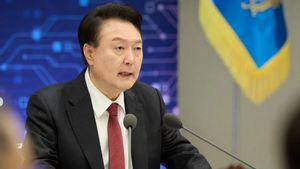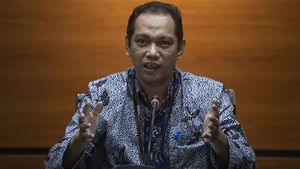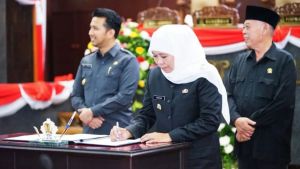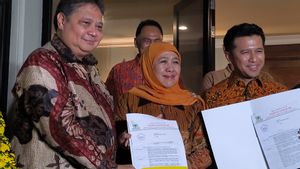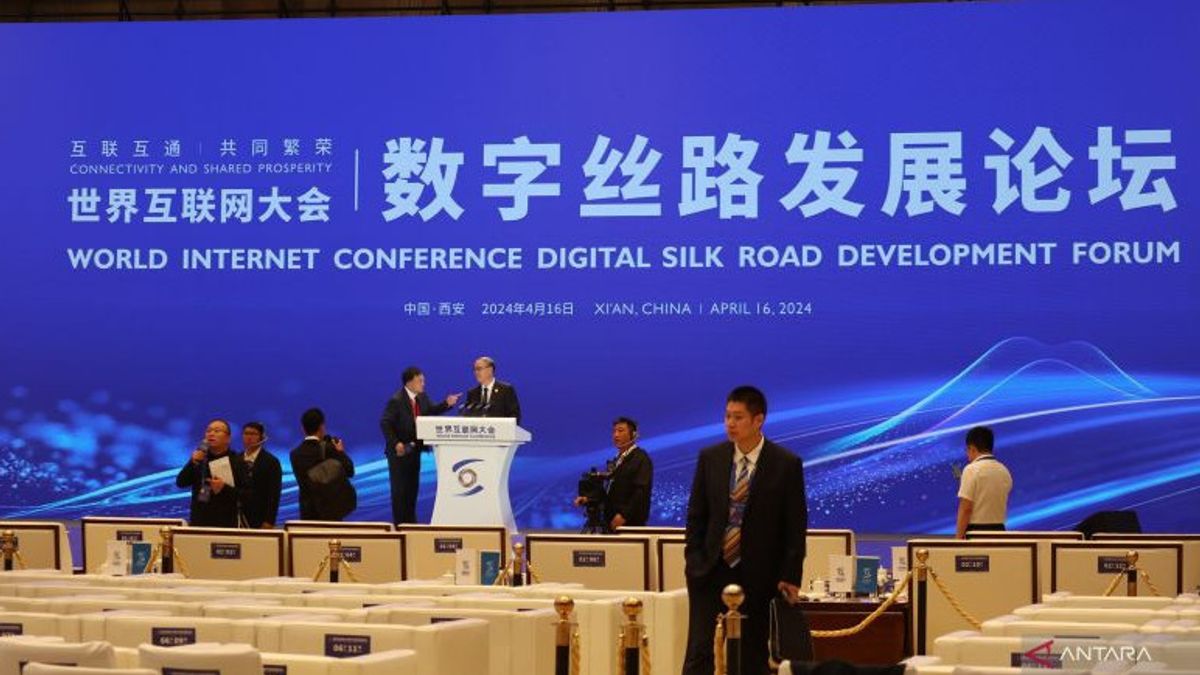
JAKARTA - The Chinese government wants to expand and accelerate the Digital Silk Road (DSR) among the countries that are members of the Belt and Road Initiative (Belt and Road Initiative or BRI).
"China wants to join hands to cooperate with BRI member countries in developing the digital economy, building the outermost areas and also developing markets so that every year we make meetings on electronic trade for China and BRI members," said Deputy Chair of the 14th China People's Political Consultative Assembly (CPPCC) Wang Yong in Xi'an, Shaanxi Province, reported by ANTARA, Tuesday, April 16.
Wang Yong conveyed this at the opening of the Digital Silk Road Development Forum at the World Internet Conference which was held on April 15-16, 2024.
This forum was jointly organized by the provincial governments of Shaanxi and the World Internet Conference (WIC), a Beijing-based agency to promote China's vision of cyberspace.
The theme of the forum is "Common Connectivity and Welfare" and discusses three topics, namely "Digital Connectivity and Cooperation in Building Silk Roads", "Siltra Channels in International E-commerce Cooperation" as well as and "Digital Village and Sustainable Development".
"This year, the discussion of the Digital Sutera Line for the first time was held in Xi'an, a city that was once the capital during the ancient silk era. This shows that technology has brought many new opportunities and as the largest developing country in the world, China has also encouraged digital integration of technology," said Wang Yong.
According to Wang Yong, China wants to share the advantages of its digital economy development with BRI members. This can encourage reciprocal connectivity and strengthen the digital supply chain while maintaining an open, fair, and non-discriminatory digital business environment.
"As a large responsible country, China is willing to cooperate with other countries to further advance the use of our technology and oppose technology blockade that can separate development. China wants 'Digital Silk Road' to be a forum for exchanging information in the field of technology so that digital technology can benefit more countries and more people," said Wang Yong.
Zhuang Rongwen as Chair of the World Internet Conference (WIC) who is also the Head of the Cyberspace Administration of China or the national internet supervisory body said it was necessary to create digital governance at the global level to face digital challenges and risks.
"It is important that there is a joint governance system in the field of technology security so that there must be a formulation and development of global digital governance norms and standards. China sees the need for us to dialogue and take joint initiatives," said Zhuang Rongwen.
The Digital Silk Road (DSR) was first proposed by President Xi Jinping in 2015, which contains cooperation programs in technology and communication, such as the digital economy, artificial intelligence, nanotechnology to quantum computing to Belt and Road Initiative (BRI) member countries.
관련 항목:
Around 800 people became participants of the forum from organizations and companies from nearly 50 countries and territories, including the Global System for Mobile Communications Association (GSMA), Shanghai Cooperation Organization, Intel, SAP, Nokia, ZTE, AS Intel, Micron Technology, Qualcomm, platforme-commerce operators of PDD Holdings and Alibaba Group Holding, private computer giant Lenovo Group and insurance company Pingan Group.
By the end of 2022, China had signed a memorandum of understanding regarding the construction of the Digital Silk Road with 17 countries, and electronic trading cooperation (e-commerce) with 30 countries, according to a white paper released by China's State Council Information Office.
A number of giante-commerce China companies such as Alibaba and Pinduoduo have also launched cross-border platforms, such as Lazada and Temu, to help more Chinese products "mengglobal".
The Belt and Road Initialiave (BRI) itself was launched in 2013 which involved large-scale investment and infrastructure development in China in 152 countries spread across Europe, Asia including Indonesia, the Middle East, Latin America, and Africa.
The English, Chinese, Japanese, Arabic, and French versions are automatically generated by the AI. So there may still be inaccuracies in translating, please always see Indonesian as our main language. (system supported by DigitalSiber.id)



